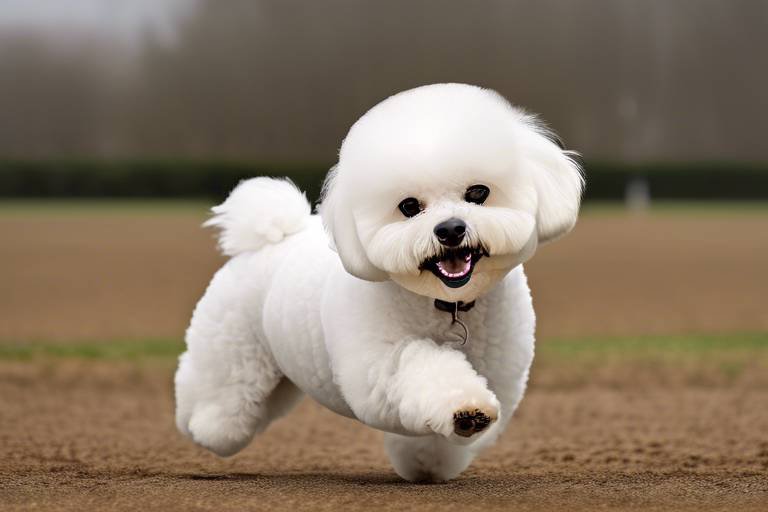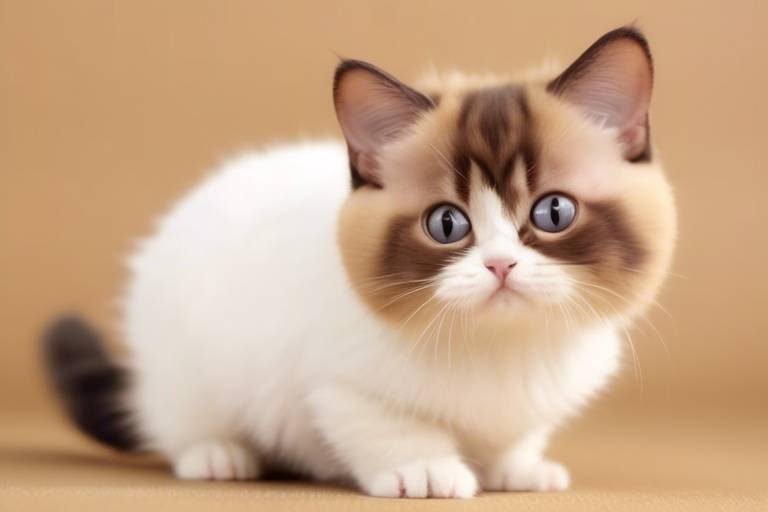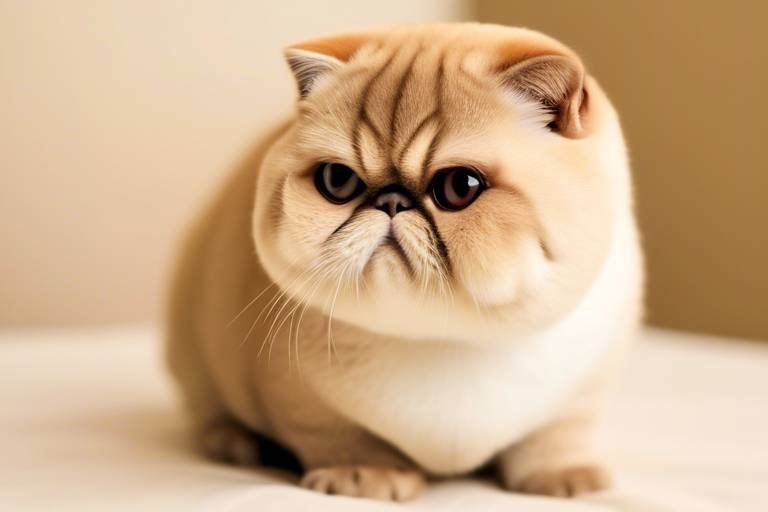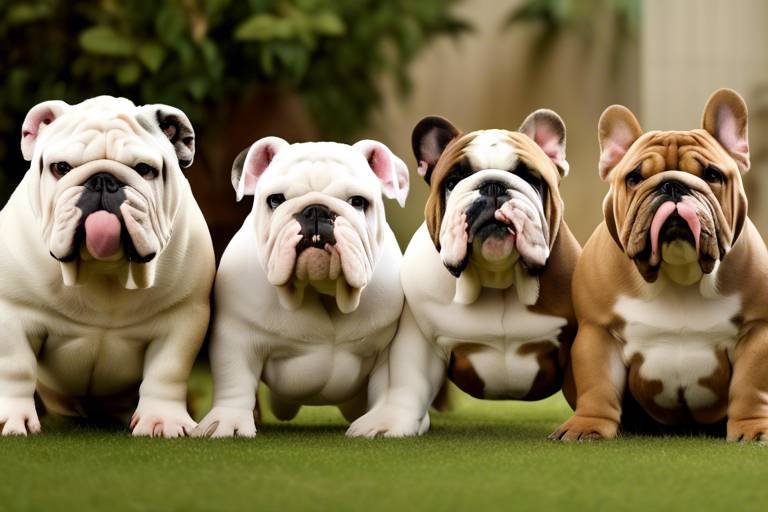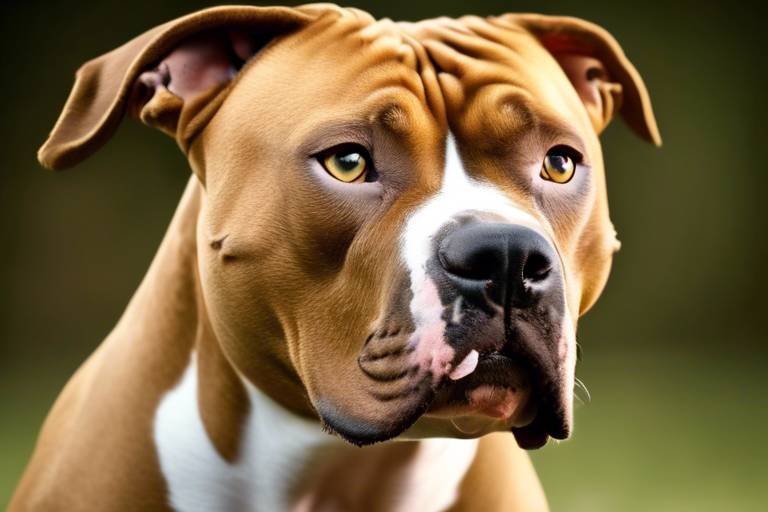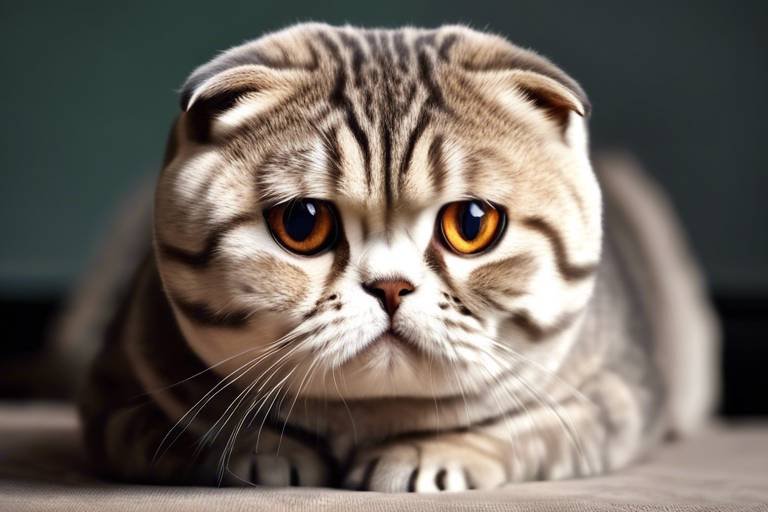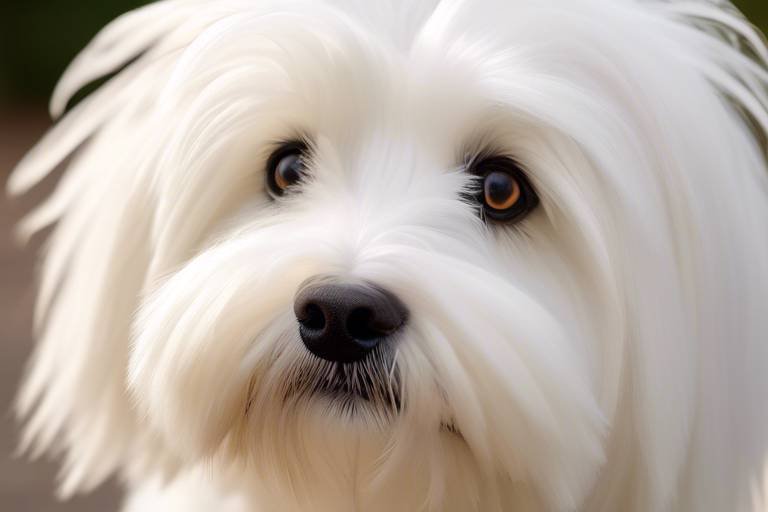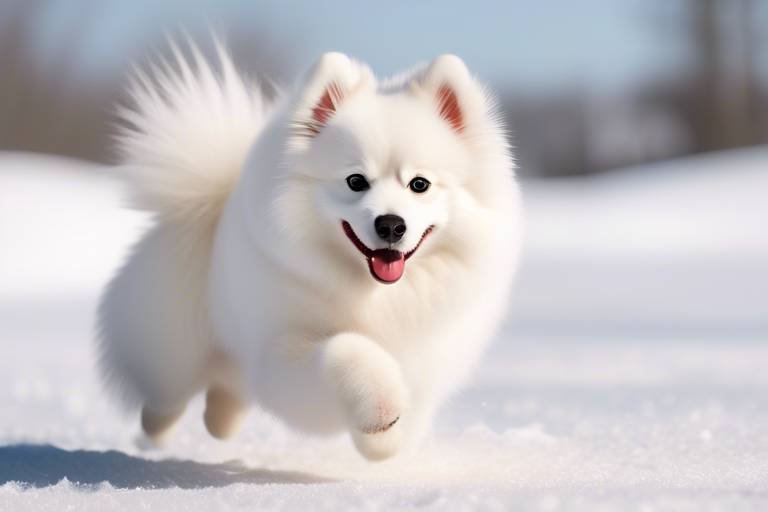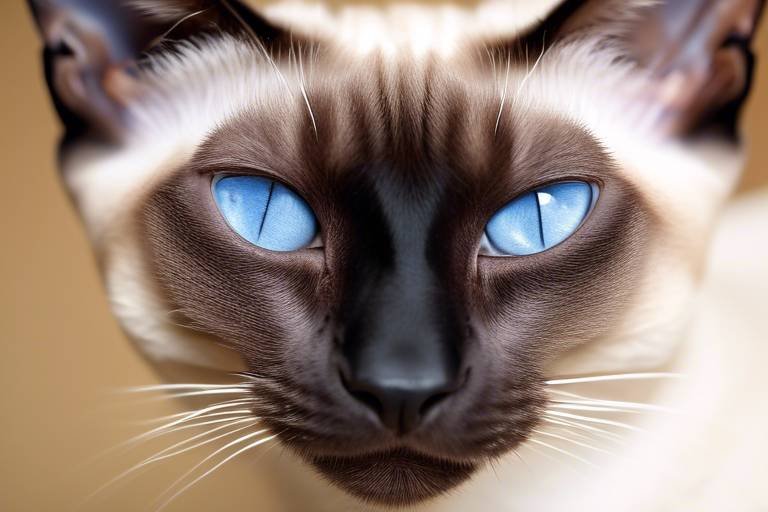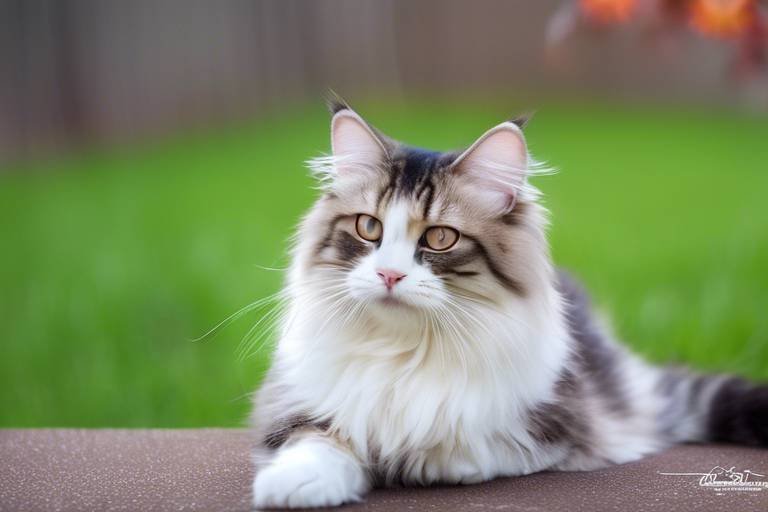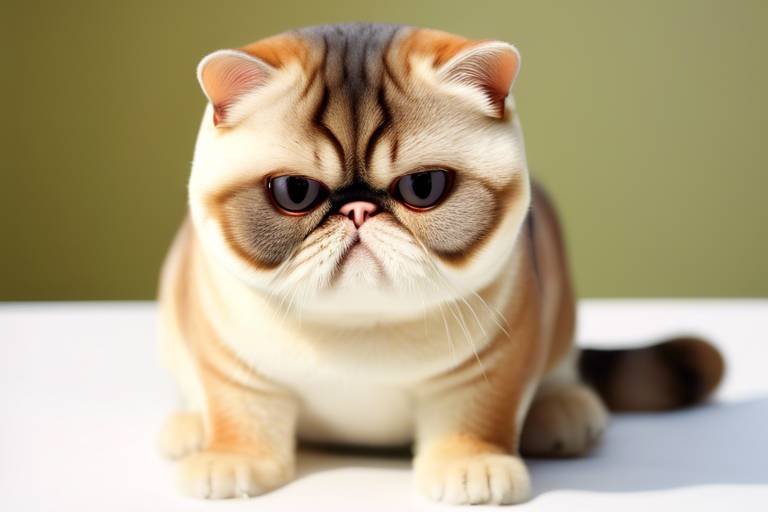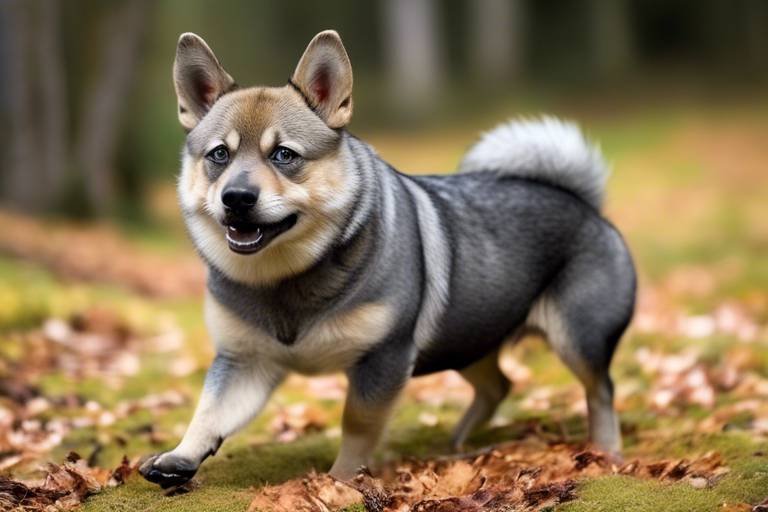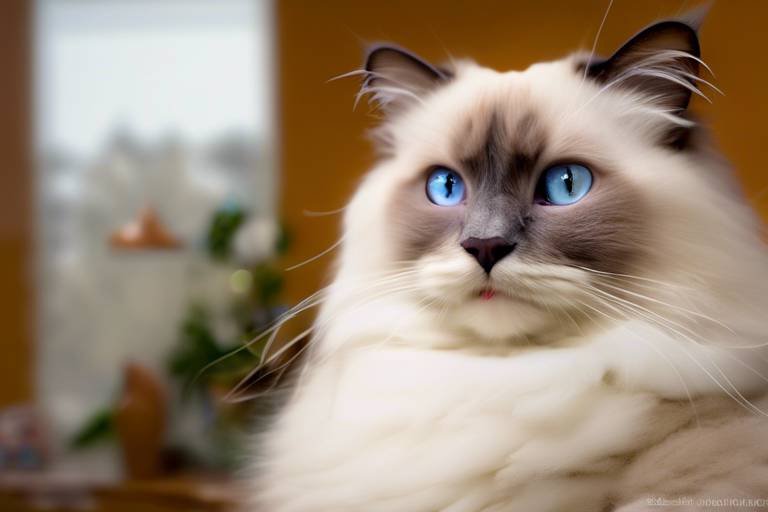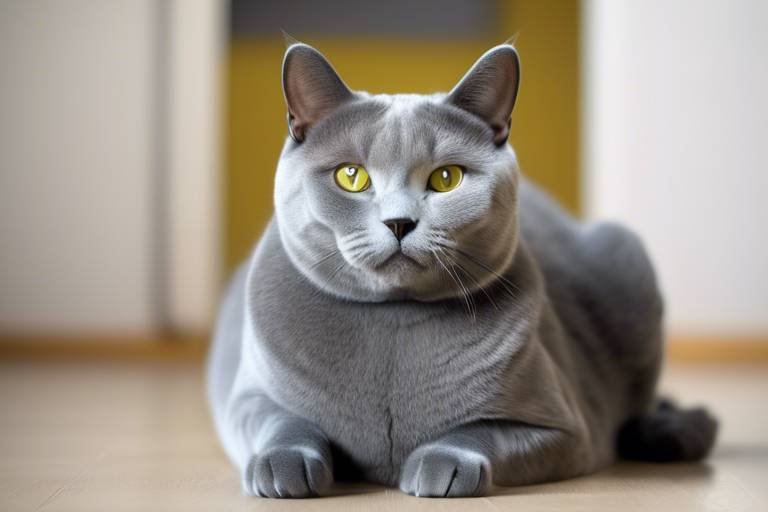The Traits of the Bichon Frise - Affectionate and Playful
The Bichon Frise is a breed that captures hearts with its affectionate nature and playful spirit. These little fluff balls are not just pets; they are family members who thrive on love and companionship. Imagine a dog that always seems to have a smile on its face, wagging its tail with excitement every time you walk through the door. That's the essence of the Bichon Frise! Their charming personality makes them a popular choice for individuals and families alike, and it's easy to see why. In this article, we will explore the delightful characteristics of the Bichon Frise, from their loving disposition to their playful antics, ensuring you understand what makes this breed such a beloved companion.
The Bichon Frise is renowned for its loving disposition, often forming strong bonds with family members. This affectionate trait makes them ideal companions for individuals and families alike. They have an uncanny ability to sense your emotions, offering comfort when you're feeling down and celebrating with you during joyful moments. With their soft, cuddly fur and warm eyes, they are like living teddy bears that just want to be loved. Their loyalty is unmatched, and they thrive on human interaction, making them an excellent choice for those who want a dog that will shower them with affection. Whether you're lounging on the couch or taking a stroll in the park, a Bichon Frise will always be by your side, ready to share in the moment.
With a lively spirit, the Bichon Frise enjoys playful interactions that keep them engaged and ensure they bring joy and laughter to their households. They are known for their playful antics, often engaging in games that can turn a dull day into a fun adventure. Whether it's chasing after a ball, playing tug-of-war, or simply frolicking around the yard, these dogs know how to have a good time. Their playful nature is not just entertaining; it also promotes a healthy lifestyle. Regular playtime helps keep them physically fit and mentally stimulated, which is crucial for their overall well-being.
Bichon Frises are naturally social dogs, thriving in environments filled with people and other pets. Their friendly demeanor encourages positive interactions, making them great additions to any home. They are not shy around strangers and often greet new people with enthusiasm, making them excellent candidates for therapy dogs. Their sociability extends to their interactions with children as well, where their gentle temperament shines through.
Their gentle temperament makes Bichon Frises excellent companions for children, promoting healthy play and nurturing relationships. They are patient and adapt well to the energy of younger family members. Imagine a child laughing and playing with a fluffy Bichon, both enjoying the simple pleasures of life together. This breed is known to be tolerant and loving, making them a perfect match for families with kids. They can handle the occasional rough play, ensuring that both the child and the dog have a great time together.
Bichon Frises typically get along well with other pets, showcasing their friendly and adaptable nature. This compatibility makes them a versatile choice for multi-pet households. They often form bonds with other dogs and even cats, creating a harmonious living environment. Their playful nature encourages them to engage in friendly play with their furry companions, making every day an adventure filled with fun and friendship.
The Bichon Frise is an intelligent breed, eager to learn and please. This trait makes training a rewarding experience, enhancing the bond between dog and owner. With the right approach, you can teach them a variety of tricks and commands, turning training sessions into a fun game. Their intelligence means they can quickly pick up on routines and expectations, making them relatively easy to house train. However, consistency and positive reinforcement are key to ensuring they thrive in their learning environment.
Proper grooming is essential for maintaining the Bichon Frise's coat and overall health. Regular grooming sessions can enhance their appearance and ensure their comfort. Given their unique coat, which is soft and curly, it requires a bit more attention compared to other breeds. Neglecting grooming can lead to matting, which can be uncomfortable for your furry friend.
The Bichon Frise has a unique coat that requires regular brushing and grooming to prevent matting. Understanding coat care is vital for any owner of this breed. It’s not just about keeping them looking cute; proper grooming is also essential for their skin health. A well-groomed Bichon is a happy Bichon, and regular grooming sessions can be a bonding experience between you and your pet.
Bathing a Bichon Frise regularly keeps their coat clean and healthy. Maintaining proper hygiene is crucial for their overall well-being and comfort. It's advisable to use a gentle, dog-specific shampoo to avoid skin irritations. Additionally, regular ear cleaning and nail trimming are important aspects of their care routine. Keeping them clean not only enhances their appearance but also contributes to their health, ensuring they remain the lively, playful companions we love.
- What is the average lifespan of a Bichon Frise? The average lifespan is around 12 to 15 years.
- Do Bichon Frises shed a lot? No, they are considered low-shedding dogs, making them suitable for allergy sufferers.
- How much exercise do they need? A daily walk and some playtime are usually sufficient to keep them happy and healthy.
- Are they good with strangers? Yes, Bichon Frises are typically friendly and welcoming towards strangers.

Affectionate Nature
This article explores the charming characteristics of the Bichon Frise, a breed known for its affectionate nature and playful demeanor. Discover what makes this breed a beloved companion.
The Bichon Frise is renowned for its loving disposition, often forming strong bonds with family members. These little fluff balls are not just pets; they become cherished members of the family. Imagine coming home after a long day, and there they are, wagging their tails with uncontainable joy, ready to shower you with affection. This affectionate trait makes them ideal companions for individuals and families alike, creating a warm and inviting atmosphere in any household.
One of the most delightful aspects of the Bichon Frise's affectionate nature is their innate ability to sense emotions. They can be a source of comfort during tough times, curling up next to you when you need it the most. Their playful antics and loving nudges can turn a frown into a smile in seconds. It's almost as if they have a sixth sense, knowing exactly when to offer a snuggle or a playful bark to lift your spirits.
These dogs thrive on human interaction, and their affectionate nature encourages them to be involved in family activities. Whether it’s snuggling on the couch during movie night or joining you for a walk in the park, Bichon Frises love to be part of the action. They are the type of dog that will follow you from room to room, always eager to be by your side. This constant companionship not only strengthens the bond between dog and owner but also enhances the overall family dynamic.
Moreover, their affectionate nature is not limited to just humans. Bichon Frises are known for their friendly demeanor, which makes them great with children and other pets. They exhibit a gentle temperament that fosters healthy play and nurturing relationships. This adaptability is a significant reason why they are often recommended for families with kids. They can handle the energetic play of young children while remaining patient and loving, creating a joyful environment for everyone involved.
In summary, the affectionate nature of the Bichon Frise is one of the key traits that endears them to so many. Their ability to form strong emotional bonds, sense human feelings, and engage positively with family members makes them not just pets, but true companions. If you’re looking for a furry friend that will fill your home with love and laughter, the Bichon Frise might just be the perfect match for you!
With a lively spirit, the Bichon Frise enjoys playful interactions. Their playful nature keeps them engaged and ensures they bring joy and laughter to their households.
Bichon Frises are naturally social dogs, thriving in environments with people and other pets. Their friendly demeanor encourages positive interactions, making them great additions to any home.
Their gentle temperament makes Bichon Frises excellent companions for children, promoting healthy play and nurturing relationships. They are patient and adapt well to the energy of younger family members.
Bichon Frises typically get along well with other pets, showcasing their friendly and adaptable nature. This compatibility makes them a versatile choice for multi-pet households.
The Bichon Frise is an intelligent breed, eager to learn and please. This trait makes training a rewarding experience, enhancing the bond between dog and owner.
Proper grooming is essential for maintaining the Bichon Frise's coat and overall health. Regular grooming sessions can enhance their appearance and ensure their comfort.
The Bichon Frise has a unique coat that requires regular brushing and grooming to prevent matting. Understanding coat care is vital for any owner of this breed.
Bathing a Bichon Frise regularly keeps their coat clean and healthy. Maintaining proper hygiene is crucial for their overall well-being and comfort.
- How often should I groom my Bichon Frise? Regular grooming every 4-6 weeks is recommended to maintain their coat.
- Are Bichon Frises good with children? Yes, their gentle nature makes them excellent companions for kids.
- Do Bichon Frises shed a lot? They are considered low-shedding dogs, making them a good choice for allergy sufferers.
- How much exercise do they need? Bichon Frises require daily walks and playtime to stay healthy and happy.

Playful Personality
This article explores the charming characteristics of the Bichon Frise, a breed known for its affectionate nature and playful demeanor. Discover what makes this breed a beloved companion.
The Bichon Frise is renowned for its loving disposition, often forming strong bonds with family members. This affectionate trait makes them ideal companions for individuals and families alike.
Imagine a little ball of fluff bounding around your living room, tail wagging with uncontainable excitement—this is the essence of the Bichon Frise's . These dogs are not just pets; they are bundles of joy that bring a sense of liveliness to any household. Their playful nature is infectious, often turning a mundane day into a delightful adventure. Whether it’s chasing after a squeaky toy or engaging in a game of fetch, Bichon Frises thrive on interaction and play.
What makes them even more special is their ability to adapt their play style to match the energy of their human companions. They can be as gentle as a breeze or as spirited as a whirlwind, depending on what their family needs at that moment. This adaptability means they are not just great for families with children but also for older adults who may prefer a calmer playtime. Their playful antics can often lead to laughter and joy, creating cherished memories for everyone involved.
In addition to their playful spirit, Bichon Frises are known for their curiosity. They love to explore their surroundings, which can lead to some amusing scenarios. You might find them investigating every nook and cranny of your home or trying to engage with other pets in the household. This natural curiosity encourages a playful attitude, making them excellent companions for those who enjoy an active lifestyle.
To further illustrate their playful nature, here are some common activities that Bichon Frises love:
- Playing fetch in the backyard.
- Engaging in tug-of-war with their favorite toys.
- Participating in interactive games that challenge their minds.
- Going for walks where they can explore new scents and sights.
In essence, the Bichon Frise’s playful personality not only enhances their bond with their human family but also enriches their own lives. They remind us to embrace joy and spontaneity, teaching us that life is too short not to play.
Bichon Frises are naturally social dogs, thriving in environments with people and other pets. Their friendly demeanor encourages positive interactions, making them great additions to any home.
Their gentle temperament makes Bichon Frises excellent companions for children, promoting healthy play and nurturing relationships. They are patient and adapt well to the energy of younger family members.
Bichon Frises typically get along well with other pets, showcasing their friendly and adaptable nature. This compatibility makes them a versatile choice for multi-pet households.
The Bichon Frise is an intelligent breed, eager to learn and please. This trait makes training a rewarding experience, enhancing the bond between dog and owner.
Proper grooming is essential for maintaining the Bichon Frise's coat and overall health. Regular grooming sessions can enhance their appearance and ensure their comfort.
The Bichon Frise has a unique coat that requires regular brushing and grooming to prevent matting. Understanding coat care is vital for any owner of this breed.
Bathing a Bichon Frise regularly keeps their coat clean and healthy. Maintaining proper hygiene is crucial for their overall well-being and comfort.
Q: How often should I groom my Bichon Frise?
A: It's recommended to groom your Bichon Frise at least every 4-6 weeks to maintain their coat and prevent matting.
Q: Are Bichon Frises good with children?
A: Yes! Bichon Frises are known for their gentle temperament and are excellent companions for children.
Q: Do Bichon Frises require a lot of exercise?
A: While they enjoy playtime, Bichon Frises do not require excessive exercise. A few short walks and play sessions each day are sufficient.
Q: Are they good for apartment living?
A: Absolutely! Bichon Frises adapt well to apartment living as long as they receive regular exercise and mental stimulation.
Socialization Skills
This article explores the charming characteristics of the Bichon Frise, a breed known for its affectionate nature and playful demeanor. Discover what makes this breed a beloved companion.
The Bichon Frise is renowned for its loving disposition, often forming strong bonds with family members. This affectionate trait makes them ideal companions for individuals and families alike.
With a lively spirit, the Bichon Frise enjoys playful interactions. Their playful nature keeps them engaged and ensures they bring joy and laughter to their households.
Bichon Frises are naturally social dogs, thriving in environments with people and other pets. Their friendly demeanor encourages positive interactions, making them great additions to any home. These little bundles of joy are not just cute faces; they have an innate ability to charm anyone they meet. When properly socialized, a Bichon Frise will greet strangers with a wagging tail and a happy bark, making them excellent candidates for family outings or visits to the dog park.
Socialization is crucial for Bichon Frises, especially during their puppy stage. Exposing them to various environments, people, and other animals helps to build their confidence and reduce any anxiety they might feel in new situations. Imagine a Bichon Frise as a small ambassador of joy, spreading happiness wherever they go. Their playful antics can turn a mundane day into a fun-filled adventure!
To ensure your Bichon Frise develops strong social skills, consider the following tips:
- Start Early: Begin socializing your puppy as soon as you bring them home. Introduce them to different people, environments, and other pets.
- Positive Reinforcement: Use treats and praise to encourage good behavior during social interactions. This builds their confidence and reinforces positive experiences.
- Regular Outings: Take your Bichon Frise on regular walks, to dog parks, or pet-friendly cafes to expose them to various stimuli and people.
By following these steps, you can help your Bichon Frise become a well-rounded and confident companion. Their ability to socialize not only enhances their quality of life but also enriches the lives of those around them.
Their gentle temperament makes Bichon Frises excellent companions for children, promoting healthy play and nurturing relationships. They are patient and adapt well to the energy of younger family members.
Bichon Frises typically get along well with other pets, showcasing their friendly and adaptable nature. This compatibility makes them a versatile choice for multi-pet households.
The Bichon Frise is an intelligent breed, eager to learn and please. This trait makes training a rewarding experience, enhancing the bond between dog and owner.
Proper grooming is essential for maintaining the Bichon Frise's coat and overall health. Regular grooming sessions can enhance their appearance and ensure their comfort.
The Bichon Frise has a unique coat that requires regular brushing and grooming to prevent matting. Understanding coat care is vital for any owner of this breed.
Bathing a Bichon Frise regularly keeps their coat clean and healthy. Maintaining proper hygiene is crucial for their overall well-being and comfort.
Here are some common questions about Bichon Frises:
- How often should I groom my Bichon Frise? Regular grooming is recommended every 4 to 6 weeks to maintain their coat.
- Are Bichon Frises good with kids? Yes, their playful and gentle nature makes them great companions for children.
- Do Bichon Frises shed a lot? Bichon Frises are considered hypoallergenic and have minimal shedding, making them suitable for allergy sufferers.
Interaction with Children
The Bichon Frise is not just a pet; it's a family member that brings joy, laughter, and an abundance of love into the home. One of the most remarkable traits of this breed is its gentle temperament, which makes it an excellent companion for children. Imagine a fluffy ball of energy, wagging its tail furiously, ready to engage in play at any moment! This breed has an innate ability to connect with kids, promoting healthy play and nurturing relationships that can last a lifetime.
What makes the Bichon Frise particularly special is its patience. Children can be unpredictable, with bursts of energy and excitement, but the Bichon is more than willing to adapt. Whether it’s a game of fetch in the backyard or a cozy cuddle session on the couch, these dogs thrive in the company of children. Their playful antics often lead to delightful moments that families cherish. It's not uncommon to see a Bichon Frise engaging in a game of chase or rolling around on the floor with the kids, creating a bond that is both fun and heartwarming.
Moreover, the Bichon Frise is known for its social nature. They love being around people, and when it comes to children, they are incredibly affectionate. This breed often exhibits a protective instinct towards their younger companions, ensuring that they feel safe and loved. In fact, many families find that their Bichon Frise becomes a loyal guardian of their children, always keeping a watchful eye and providing comfort during times of need.
However, it’s important to teach children how to interact with their furry friends. Here are some tips for ensuring a harmonious relationship between Bichon Frises and kids:
- Gentle Play: Encourage children to play gently with the dog to avoid accidental injuries.
- Respect Boundaries: Teach kids to recognize when the dog wants to be left alone, especially during grooming or rest times.
- Positive Reinforcement: Involve children in training sessions to foster a sense of teamwork and responsibility.
In summary, the Bichon Frise's interaction with children is a beautiful symphony of love, laughter, and companionship. Their playful and affectionate nature makes them the perfect addition to any family, creating lasting memories and bonds that enrich the lives of both kids and dogs alike.
1. Are Bichon Frises good with young children?
Yes, Bichon Frises are known for their gentle and playful nature, making them excellent companions for young children.
2. How should children interact with a Bichon Frise?
Children should be taught to play gently, respect the dog's space, and participate in training to foster a positive relationship.
3. Can Bichon Frises handle rough play?
While they are playful, it's essential to supervise interactions to ensure that play remains gentle to prevent any injuries.
4. Do Bichon Frises require special training for kids?
Not necessarily, but involving children in training can help them learn how to interact properly with the dog.
Compatibility with Other Pets
The Bichon Frise is not just a delightful companion for humans; they are also incredibly compatible with other pets. Their friendly and adaptable nature allows them to coexist harmoniously with various animals, making them a versatile choice for multi-pet households. Imagine a household bustling with energy—children playing, adults chatting, and pets frolicking around. The Bichon Frise fits perfectly into this lively environment, often becoming the glue that holds the family together.
One of the reasons Bichon Frises get along so well with other pets is their gentle temperament. Unlike some breeds that may display territorial behavior, Bichons tend to be more laid-back and welcoming. They possess an innate curiosity that drives them to interact positively with both dogs and cats. Their social skills shine through during playtime, where they can engage in games and activities with their furry friends. This breed thrives on companionship, and having other pets around only enhances their joy.
It's essential to introduce a Bichon Frise to other pets gradually. Proper introductions can lead to long-lasting friendships. Here are a few tips to ensure a smooth transition:
- Supervised Introductions: Always supervise initial meetings between your Bichon and other pets to prevent any misunderstandings.
- Positive Reinforcement: Reward both the Bichon and the other pet with treats and praise during interactions to create positive associations.
- Safe Spaces: Provide each pet with their own space to retreat to when needed, ensuring they feel secure.
As a small breed, Bichon Frises are generally non-threatening to larger pets, which can ease the tension during introductions. However, it's vital to consider the personality of the other pets involved. For instance, a high-energy dog may need to be closely monitored around a Bichon to ensure that play doesn't become too rough. On the other hand, Bichons often find great friends in calm and gentle pets, regardless of their size.
In summary, the Bichon Frise’s affectionate and playful nature extends beyond human companionship to include a friendly rapport with other pets. Their ability to adapt and socialize makes them an excellent addition to any family, ensuring that every day is filled with joy, laughter, and a sense of community among all family members, both two-legged and four-legged.
Here are some common questions regarding the compatibility of Bichon Frises with other pets:
- Do Bichon Frises get along with cats? Yes, Bichon Frises can get along well with cats, especially if they are introduced properly and at a young age.
- Can Bichon Frises live with larger dogs? Absolutely! Bichons are generally unassuming and can coexist peacefully with larger breeds, provided the introductions are managed carefully.
- What should I do if my Bichon is afraid of other pets? Gradual exposure and positive reinforcement can help your Bichon become more comfortable around other pets. Patience is key!
Intelligence and Trainability
This article explores the charming characteristics of the Bichon Frise, a breed known for its affectionate nature and playful demeanor. Discover what makes this breed a beloved companion.
The Bichon Frise is renowned for its loving disposition, often forming strong bonds with family members. This affectionate trait makes them ideal companions for individuals and families alike.
With a lively spirit, the Bichon Frise enjoys playful interactions. Their playful nature keeps them engaged and ensures they bring joy and laughter to their households.
Bichon Frises are naturally social dogs, thriving in environments with people and other pets. Their friendly demeanor encourages positive interactions, making them great additions to any home.
Their gentle temperament makes Bichon Frises excellent companions for children, promoting healthy play and nurturing relationships. They are patient and adapt well to the energy of younger family members.
Bichon Frises typically get along well with other pets, showcasing their friendly and adaptable nature. This compatibility makes them a versatile choice for multi-pet households.
The Bichon Frise is an intelligent breed, eager to learn and please. This trait makes training a rewarding experience, enhancing the bond between dog and owner. Their quick wit and curiosity mean they can pick up commands and tricks with relative ease. In fact, many owners find that their Bichon Frises can learn new commands in just a few repetitions!
Training sessions can be incredibly enjoyable for both the dog and the owner, as Bichon Frises often show enthusiasm and a willingness to engage. To make the most out of training, it's essential to use positive reinforcement techniques, such as treats and praise, which resonate well with their affectionate nature. Here are a few tips for successful training:
- Keep it Fun: Incorporate games into training sessions to maintain your Bichon Frise's interest.
- Be Consistent: Use the same commands and cues to avoid confusing your dog.
- Short Sessions: Limit training to 5-10 minutes to keep your dog engaged without overwhelming them.
Additionally, socialization is a crucial aspect of training for Bichon Frises. Introducing them to different environments, people, and other animals can help them become well-rounded companions. This breed tends to thrive in social settings, and early exposure can prevent behavioral issues down the line.
In summary, the Bichon Frise's intelligence and eagerness to please make them a joy to train. Their natural curiosity and playful spirit ensure that every training session is not just a learning opportunity but also a chance to strengthen the bond between you and your furry friend.
Proper grooming is essential for maintaining the Bichon Frise's coat and overall health. Regular grooming sessions can enhance their appearance and ensure their comfort.
The Bichon Frise has a unique coat that requires regular brushing and grooming to prevent matting. Understanding coat care is vital for any owner of this breed.
Bathing a Bichon Frise regularly keeps their coat clean and healthy. Maintaining proper hygiene is crucial for their overall well-being and comfort.
Training sessions should be short and frequent, ideally lasting 5-10 minutes each, several times a day.
Yes! Bichon Frises are known for their gentle temperament and are excellent companions for children.
Yes, they have a unique coat that needs regular brushing and grooming to prevent matting.
Absolutely! They are friendly and adaptable, making them great companions for other pets.

Grooming Needs
This article explores the charming characteristics of the Bichon Frise, a breed known for its affectionate nature and playful demeanor. Discover what makes this breed a beloved companion.
The Bichon Frise is renowned for its loving disposition, often forming strong bonds with family members. This affectionate trait makes them ideal companions for individuals and families alike.
With a lively spirit, the Bichon Frise enjoys playful interactions. Their playful nature keeps them engaged and ensures they bring joy and laughter to their households.
Bichon Frises are naturally social dogs, thriving in environments with people and other pets. Their friendly demeanor encourages positive interactions, making them great additions to any home.
Their gentle temperament makes Bichon Frises excellent companions for children, promoting healthy play and nurturing relationships. They are patient and adapt well to the energy of younger family members.
Bichon Frises typically get along well with other pets, showcasing their friendly and adaptable nature. This compatibility makes them a versatile choice for multi-pet households.
The Bichon Frise is an intelligent breed, eager to learn and please. This trait makes training a rewarding experience, enhancing the bond between dog and owner.
Proper grooming is essential for maintaining the Bichon Frise's coat and overall health. Their fluffy, curly coat requires regular attention to avoid tangles and mats, which can be uncomfortable for your furry friend. Regular grooming sessions not only enhance their appearance but also ensure their comfort and well-being. Typically, owners should aim for grooming every 4 to 6 weeks, depending on the individual dog's coat condition.
In addition to regular grooming, there are specific grooming practices that every Bichon Frise owner should be aware of. Here are some key areas to focus on:
- Brushing: Daily brushing is recommended to prevent matting and to keep their coat looking fluffy and healthy.
- Bathing: Bathing your Bichon Frise every 3 to 4 weeks helps to keep their coat clean and free from odors. Use a gentle dog shampoo to avoid skin irritation.
- Ear Cleaning: Regularly check and clean their ears to prevent infections. A damp cloth or a vet-recommended ear cleaner works well.
- Nail Trimming: Keep their nails trimmed to a comfortable length to prevent discomfort or injury.
Understanding coat care is vital for any owner of this breed. A well-groomed Bichon Frise not only looks adorable but also feels comfortable and happy. Remember, grooming is not just about aesthetics; it’s an essential part of your dog’s health routine.
The Bichon Frise has a unique coat that requires regular brushing and grooming to prevent matting. This breed's coat is different from many others—it's soft, curly, and hypoallergenic, which means it doesn't shed much. However, this also means that dead hair can become trapped in the coat, leading to mats if not addressed. Owners should invest in a good-quality slicker brush and a comb to tackle tangles and keep their Bichon looking its best.
Bathing a Bichon Frise regularly keeps their coat clean and healthy. Maintaining proper hygiene is crucial for their overall well-being and comfort. Alongside regular baths, it's important to use dog-safe products that won't irritate their skin. Always dry them thoroughly after a bath to prevent any chill, especially in cooler weather. This routine not only helps maintain their coat but also strengthens the bond between you and your furry friend.
Q: How often should I groom my Bichon Frise?
A: It is recommended to groom your Bichon Frise every 4 to 6 weeks, with daily brushing at home to prevent mats.
Q: Can I bathe my Bichon Frise too often?
A: While regular bathing is necessary, over-bathing can strip their coat of natural oils. Aim for every 3 to 4 weeks.
Q: What tools do I need for grooming?
A: Essential tools include a slicker brush, comb, dog shampoo, nail clippers, and ear cleaner.
Q: Do Bichon Frises shed?
A: Bichon Frises are considered hypoallergenic and do not shed much, but regular grooming is still essential to remove dead hair.
Coat Care
This article explores the charming characteristics of the Bichon Frise, a breed known for its affectionate nature and playful demeanor. Discover what makes this breed a beloved companion.
The Bichon Frise is renowned for its loving disposition, often forming strong bonds with family members. This affectionate trait makes them ideal companions for individuals and families alike.
With a lively spirit, the Bichon Frise enjoys playful interactions. Their playful nature keeps them engaged and ensures they bring joy and laughter to their households.
Bichon Frises are naturally social dogs, thriving in environments with people and other pets. Their friendly demeanor encourages positive interactions, making them great additions to any home.
Their gentle temperament makes Bichon Frises excellent companions for children, promoting healthy play and nurturing relationships. They are patient and adapt well to the energy of younger family members.
Bichon Frises typically get along well with other pets, showcasing their friendly and adaptable nature. This compatibility makes them a versatile choice for multi-pet households.
The Bichon Frise is an intelligent breed, eager to learn and please. This trait makes training a rewarding experience, enhancing the bond between dog and owner.
Proper grooming is essential for maintaining the Bichon Frise's coat and overall health. Regular grooming sessions can enhance their appearance and ensure their comfort.
The Bichon Frise boasts a beautiful, curly coat that requires diligent care. To keep their coat looking its best, you should establish a grooming routine that includes regular brushing and trimming. Brushing is crucial as it helps prevent matting and tangling, which can be uncomfortable for your furry friend. Aim to brush your Bichon Frise at least two to three times a week, using a slicker brush or a comb designed for curly coats.
In addition to brushing, you should also schedule regular visits to a professional groomer. A groomer can give your Bichon a trim to maintain their signature fluffy look and help with any areas that may require special attention. Remember, a well-groomed dog is not only a happy dog but also a healthy one!
Another aspect of coat care is keeping an eye on their ears and eyes. The Bichon Frise is prone to ear infections due to their floppy ears, so it's essential to clean them regularly. Additionally, tear staining is common in this breed, so wiping their eyes gently with a damp cloth can help maintain their adorable appearance.
Overall, investing time and effort into your Bichon Frise's coat care is a labor of love that will pay off in both their health and happiness.
Bathing a Bichon Frise regularly keeps their coat clean and healthy. Maintaining proper hygiene is crucial for their overall well-being and comfort.
The best way to groom a Bichon Frise is to brush their coat regularly, at least two to three times a week, and schedule professional grooming every 4-6 weeks. This routine helps prevent matting and keeps their coat looking fluffy.
It's recommended to bathe your Bichon Frise every 3-4 weeks. However, if they get dirty or start to smell, feel free to give them a bath sooner.
Bichon Frises are considered a low-shedding breed, which makes them a great choice for people with allergies. However, regular grooming is still essential to keep their coat healthy.
Yes! Bichon Frises are known for their gentle temperament and are excellent companions for children. They are playful and patient, making them a wonderful addition to families.
Bathing and Hygiene
This article explores the charming characteristics of the Bichon Frise, a breed known for its affectionate nature and playful demeanor. Discover what makes this breed a beloved companion.
The Bichon Frise is renowned for its loving disposition, often forming strong bonds with family members. This affectionate trait makes them ideal companions for individuals and families alike.
With a lively spirit, the Bichon Frise enjoys playful interactions. Their playful nature keeps them engaged and ensures they bring joy and laughter to their households.
Bichon Frises are naturally social dogs, thriving in environments with people and other pets. Their friendly demeanor encourages positive interactions, making them great additions to any home.
Their gentle temperament makes Bichon Frises excellent companions for children, promoting healthy play and nurturing relationships. They are patient and adapt well to the energy of younger family members.
Bichon Frises typically get along well with other pets, showcasing their friendly and adaptable nature. This compatibility makes them a versatile choice for multi-pet households.
The Bichon Frise is an intelligent breed, eager to learn and please. This trait makes training a rewarding experience, enhancing the bond between dog and owner.
Proper grooming is essential for maintaining the Bichon Frise's coat and overall health. Regular grooming sessions can enhance their appearance and ensure their comfort.
The Bichon Frise has a unique coat that requires regular brushing and grooming to prevent matting. Understanding coat care is vital for any owner of this breed.
Bathing a Bichon Frise is not just about cleanliness; it's an opportunity to bond with your furry friend. Regular baths help keep their coat in top condition, preventing dirt and oils from building up. Ideally, you should bathe your Bichon every 3 to 4 weeks, but this can vary based on their activity level and environment. If your Bichon loves to play outdoors, you might find yourself giving them a bath more frequently!
When bathing, always use a gentle, dog-specific shampoo to avoid irritating their skin. It's important to rinse thoroughly, as leftover shampoo can lead to skin issues. After the bath, consider applying a conditioner designed for Bichon Frises; this can help maintain their soft, curly coat and make brushing easier.
Aside from baths, maintaining proper hygiene involves regular ear cleaning and teeth brushing. Bichon Frises are prone to dental issues, so brushing their teeth a few times a week is recommended. Additionally, keeping an eye on their ears is crucial; clean them gently with a vet-approved solution to prevent infections.
Here’s a quick overview of the bathing and hygiene routine:
| Task | Frequency |
|---|---|
| Bathing | Every 3-4 weeks |
| Ear Cleaning | Weekly |
| Teeth Brushing | 2-3 times a week |
By following these grooming tips, not only will you keep your Bichon Frise looking fabulous, but you'll also contribute to their overall health and happiness. Remember, a clean dog is a happy dog!
- How often should I bathe my Bichon Frise?
It is recommended to bathe them every 3 to 4 weeks, but this can vary based on their activity level. - What type of shampoo should I use?
Always use a gentle, dog-specific shampoo to avoid irritating their skin. - Do Bichon Frises require special grooming tools?
Yes, a slicker brush and a comb are ideal for keeping their coat tangle-free. - How can I maintain my Bichon's dental health?
Brush their teeth a few times a week and consider dental treats to help reduce plaque buildup.
Frequently Asked Questions
- What is the temperament of a Bichon Frise?
The Bichon Frise is known for its affectionate and playful nature. They are friendly, loving, and thrive on human interaction, making them excellent companions for individuals and families.
- Are Bichon Frises good with children?
Absolutely! Bichon Frises have a gentle temperament that makes them great companions for children. They are patient and adapt well to the energy of younger family members, promoting healthy play and nurturing relationships.
- How do Bichon Frises interact with other pets?
Bichon Frises are typically very social and get along well with other pets. Their friendly demeanor makes them a versatile choice for multi-pet households, as they easily adapt to different environments and companions.
- Are Bichon Frises easy to train?
Yes! Bichon Frises are intelligent dogs that are eager to learn and please their owners. This makes training a rewarding experience, enhancing the bond between the dog and its owner.
- What grooming needs do Bichon Frises have?
Proper grooming is essential for Bichon Frises. Their unique coat requires regular brushing and grooming to prevent matting. Regular grooming sessions not only enhance their appearance but also ensure their comfort and health.
- How often should I bathe my Bichon Frise?
It's recommended to bathe your Bichon Frise regularly to keep their coat clean and healthy. Maintaining proper hygiene is crucial for their overall well-being and comfort.

